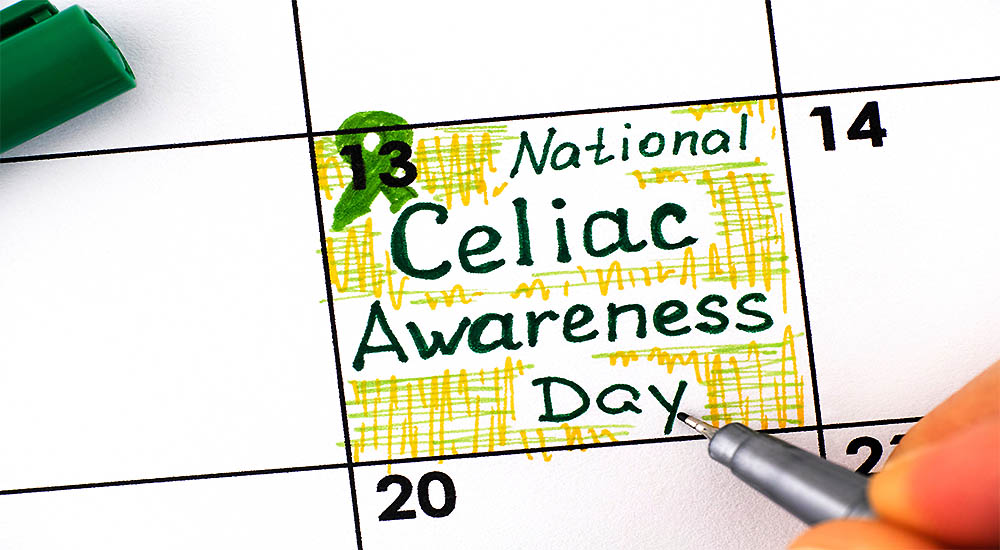Celiac Awareness Day – Misconceptions & False Data Still Abound

 Awareness is Increasing but Some Data is Misleading
Awareness is Increasing but Some Data is Misleading
This week we celebrated Celiac Awareness Day. It is excellent whenever the spotlight of media shines on this devastating illness because it shortens lives and the vast majority of those suffering have no idea why.
As a country, our awareness of the celiac disease has a long way to go. The need for increased awareness and accurate data really hit me recently when I spotted an article in a US paper that contained comments that could not only confuse readers but could outright dissuade someone from ever trying a gluten-free diet.
While I am not an advocate of “policing” the internet for false information, sometimes the urge does strike, especially when I run across such erroneous data. Unfortunately, there are some common misconceptions that are being propagated about celiac disease and gluten sensitivity, so let’s look at a few specifics.
A Dietician Gets it All Wrong
A registered dietician from a local healthcare system was interviewed and what follows are some statements that she was quoted as making:
1. “Ironically gluten-free foods are actually denser, higher in calories and more expensive,” If you are examining gluten-free desserts, it certainly is true that they are high in calories, most desserts are. And yes, gluten-free bread, cookies, and cakes are more expensive than their gluten-containing counterparts.
But let’s look at what’s wrong with the above statement. The truth of the matter is that such a broad statement does not take into consideration all the naturally gluten-free foods. These include the following:
• Every fruit
• Every vegetable
• Every meat, fish, bird, and game
• Every nut
• Every seed
• Every legume
• Plus many grains such as rice, millet, quinoa, tef, and starches such as corn, potato, arrowroot, tapioca, etc.
Generalizations Can Be Dangerous
Therefore, making the blanket statement that a gluten-free diet is a high calorie one is a bit ridiculous.
Certainly, the foods mentioned don’t suddenly become more caloric because one is eating gluten-free. Nor does the cost of any of the above foods rise because one is on a gluten-free diet.
Americans and their rate of obesity is certainly a serious issue but to blame a gluten-free diet as a cause of increased calories is narrow in its scope. I have been treating patients with gluten intolerance (I use this term to be inclusive of celiac disease and gluten sensitivity) for almost 20 years. While it is critical to diagnose someone with such intolerance, it is also vital that they eat a healthy diet so that they can heal from the ravages of gluten.
I certainly don’t put gluten-free cookies and cakes at the top of the “must eat” list, much the way no smart doctor would put gluten-containing cookies and cakes at the top of a healthy diet list. Removing gluten from the diet is just one step.
Getting healthy is not just about what you AREN’T eating but also very much about what you ARE. So to dismiss a gluten-free diet as more expensive and higher in calories is truly a generalization that is quite misleading.
Don’t Let False Data Prevent You from Being Diagnosed
2. “there are no inherent medical benefits to a gluten-free diet.” Really? This is truly an unfortunate case of being uninformed. Let’s look at some facts:
- 95% of our population suffering from celiac disease are never diagnosed.
- There are over 100 diseases and 300 symptoms associated with gluten intolerance.
- Celiac disease is the most common life-long disorder in the US and Europe.
- Those who remain undiagnosed with celiac disease and gluten sensitivity are more likely to die from all causes than their gluten tolerant counterparts.
- Testing is not adequately sensitive, so a gluten-free diet is one of the gold standards of diagnosis.
- The protein in glutinous grains is not able to be properly digested by any human being. Our “protein chopping equipment” is simply unequipped to adequately diagnose this protein.
There are many benefits to a gluten-free diet. Making any statement to the contrary is doing the millions who remain undiagnosed, suffering from a toxin that they can’t identify, a grave disservice.
‘Everything in Moderation’ Doesn’t Work for Gluten
3. “Generally, people who have a gluten intolerance should avoid products with any amount of gluten in them, but the level of sensitivity varies.” This is another common misconception that I wanted to address.
While there are some celiacs who can detect a minuscule crumb of bread in their meal, that doesn’t mean that those with gluten sensitivity don’t also react to small amounts of gluten. Laboratory tests can prove that the body’s immune system “knows” that gluten has entered it and a negative physical reaction ensues, whether the individual can “feel” it or not. This is true for those with celiac disease as well as those who are gluten sensitive.
In fact, for many of those suffering from gluten sensitivity, their reaction is not a digestive one, but instead, the problem stems from a different system such as the nervous system or skin.
Symptoms such as fatigue, migraine, brain fog, depression, anxiety, and skin rashes, to name a few, are extremely common as a reaction to gluten. The truth of the matter is that gluten awareness is on the rise and that is a very good thing.
But with popularity comes many opinions and some are more informed than others. I am in no way claiming perfection, but I do try to remain on the cutting edge of this field to share with you the facts vs. the fiction, as best as I know them.
Do you need help with your health?
We have the diagnostic and testing tools, the clinical experience, and a different medical approach to discovering the root cause of why you have the symptoms that are bothering you. As long as you are ready to make some dietary and lifestyle changes, we can help you. We will "hold your hand" through the changes, step by step, to make each step an easy one. We are located in Clearwater, FL, at 1000 S Ft Harrison, at the corner of Ft. Harrison Ave. and Magnolia St. There is plenty of parking space directly accessible from Ft Harrison. If it is not convenient for you to come to Root Cause Medical Clinic, we offer telehealth/telemedicine consultations to residents of certain states. Call us for details.
Contact us for a Consultation – Call 727-335-0400

Dr. Vikki Petersen DC. CCN
Founder of Root Cause Medical Clinic
Certified Functional Medicine Practitioner
Dr Vikki Petersen is a public speaker, author of two books, several eBooks and creates cutting edge content for her YouTube community. Dr Vikki is committed to bringing Root Cause Medicine and its unique approach to restoring health naturally to the world.
Ask a Doctor
Have a health concern you'd like to speak with a doctor about? Or just want clarity on a subject? Ask Us!

 Awareness is Increasing but Some Data is Misleading
Awareness is Increasing but Some Data is Misleading
